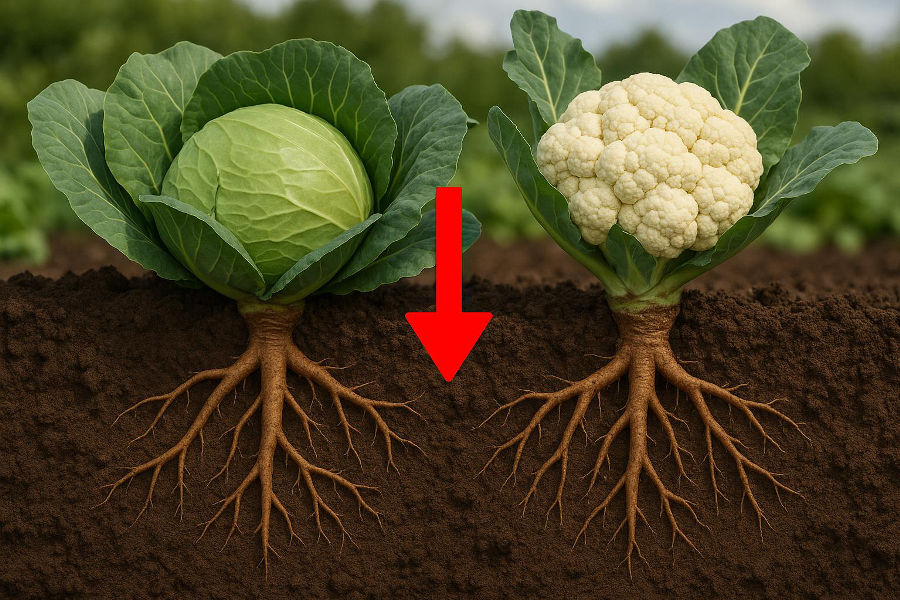Why mycorrhiza fails in cabbage ?
The use of mycorrhizal fungi in farming is increasing due to their benefits in improving nutrient uptake and soil health. However, many farmers observe that these products do not work in crops like cabbage, cauliflower, mustard, and radish. These crops belong to the Brassicaceae family and do not respond to mycorrhiza. Here is a clear explanation of why this happens.
What is mycorrhiza ?
Mycorrhiza is a beneficial fungus that forms a symbiotic relationship with plant roots. It helps plants absorb phosphorus, zinc, and water more effectively from the soil. In return, the plant supplies sugars to the fungus. This partnership improves plant growth and is common in many crops such as wheat, maize, tomato, and legumes.
Why it doesn’t work in cabbage ?
Cabbage belongs to the Brassicaceae family. These plants naturally do not support mycorrhizal colonization. There are three main reasons:
1. presence of glucosinolates
Brassicaceae crops produce compounds called glucosinolates, which have antifungal properties. These can stop mycorrhizal fungi from growing near the roots.
2. lack of root signals
Most plants release chemical signals like strigolactones that attract mycorrhiza. Cabbage and its relatives do not produce these signals, so the fungi cannot recognize or attach to the roots.
3. genetic absence
Brassicaceae plants lack the genes required to form partnerships with mycorrhizal fungi. This is a natural limitation, not a soil or product issue.
What can be used instead ?
Since mycorrhiza does not work, farmers should use other biological options to improve nutrient uptake and plant health in cabbage.
-
phosphate solubilizing bacteria (psb) : helps release phosphorus from the soil and makes it available to plants
-
humic and fulvic acids : improves root growth, nutrient absorption, and soil quality
-
seaweed extracts and amino acid biostimulants : encourages healthy growth and improves resistance to stress
-
soil management : maintain proper pH (6.0 to 7.0) and use well-decomposed organic manure or compost
